The husband of Daphne Caruana Galizia and one of her three sons, Matthew, this morning gave a chilling account of the way the journalist was threatened, insulted and vilified in a bid to stop her from continuing her investigations and writing on her blog.
Both Peter and Matthew Caruana Galizia were tesifying before a board of public inquiry set up to find out whether the muder which took place on 16 October, 2017 could have been avoided.
The public inquiry into the assassination of Daphne Caruana Galizia held its first sitting in court this morning, while a second one in which other members of the Caruana Galizia family will testify.
Judge Michael Mallia is the chairman of the inquiry board. Chief Justice Emeritus Joseph Said Pullicino and Madam Justice Abigail Lofaro are the two other members.
Below you may read a minute by minute account of the testimony today, which lasted around three hours.
11.54am: The sitting is over. The testimony of Daphne's parents and sisters will be on 10 December
11.50am: The hatred made it easy to get rid of her, as she was not considered a person anymore.
It appears that the Electrogas contract was what led to her death, although it appears that other people were involved, he says

11.47am: Asked by Therese Comodini Cachia if ministers took steps to stop hatred or insults against Daphne, Peter Caruana Galizia said no. Aside from being called Sahhara of Bidnija (witch of Bidnija), it was common for people to call her hate blogger, and some ministers even called her that. "This hurt me and children alot," he said. It was as though they were trying to say it was her fault she died and the government had nothing to do with it. Asked if there was a statement or action to stop such acts being said against her, he said "No, never." He mentioned Owen Bonnici as one who had called Daphne a hate blogger.
11.43am: Peter Caruana Galizia also spoke about the importance of Taste and Flair (the magazine is published with The Malta Independent) for her. She used to love doing it, and it was a source of revenue for her, he said, while describing the problems she had while her accounts were frozen. He said that his wife was constantly villified, but had thick skin. She expected it and handled it. Our problem was that she was too good at what she did. The institutions that failed the most - the FIAU compiled the reports and passed them on to police, and police had representative on FIAU board, who was Ian Abdilla. The police have all FIAU reports, but no-one has been charged. Even the fact that the PM kept Konrad Mizzi and Schembri after Panama Papers, shows impunity or problems with state structure
11.40am: Peter Caruana Galizia said that the police and all those involved did not take the necessary action when the Panama Papers came out, and never acted on the reports that were drawn up by the FIAU. He said Electrogas issues, Panama Papers, corruption of 17 Black which she did not know belonged to Yorgen Fenech.... while she revealed them, nobody took action. She was left completely alone to fight. He also noted the Chris Cardona brothel situation
11.37am: Said Pullicino said that they are here to establish whether the institutions failed. "What we would like from you is to go through the institutions as we know them and identify the serious failures in the institutions".
11.36am: Peter Caruana Galizia noted that when Daphne wrote about Consuelo Scerri Herrera and that saga began, she began receiving anonymous letters, and had even found handcuffs in the letter box. The libel case by the then magistrate was withdrawn. Life was not a normal one... "but for us was normal". Every month, or every so often there was something, either problems with politicians etc. for us it was normal and we took it in our stride, but we never thought it would result in her murder. We could deal with the burnt doors, it came with the job, but to kill her...
11.33am: He mentioned another situation that happened to them, during a Rabat feast. They were walking in the road with a group of 10 friends, and he realised that she was not with them anymore. The former Zurrieq Mayor, who she had written about and had a problem with my wife, began insulting her. There were some people from the Rabat Kazin, who noticed her and began insulting her and approaching her. The priests from the convent took her inside at that point. Eventually the police came, and they went to the police station to file a report against Natius Farrugia and others. Then magistrate hearing the case made an error and Farrugia was let go.
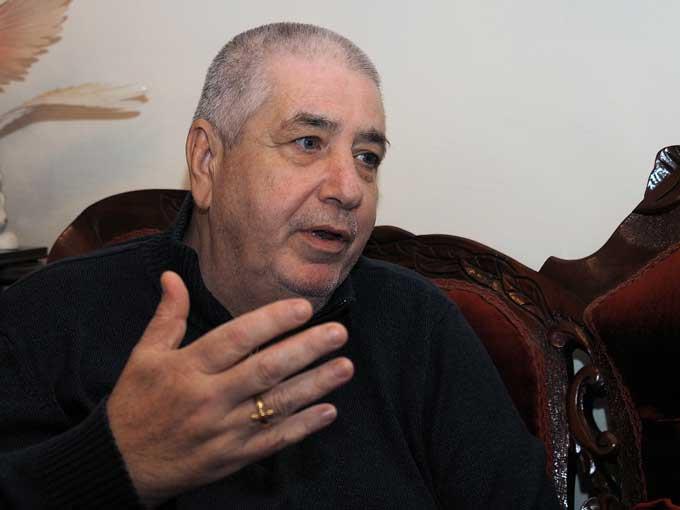
11.30am: Turning to police protection, he mentioned that former Commissioner John Rizzo would send police protection day and night at election time, and when there were certain issues. She said that some police who would come would pass information to Glenn Bedingfield etc which annoyed her, but Rizzo insisted that whether she wanted or not, he was sending protection. Rizzo felt she needed it, that she was a person who needed protection. When he was no longer commissioner this stopped, bar for two days during the hunting referendum, he said. He said that it could be during elections they would have protection, the day of election and after. In the past, he said, patrols would pass even 15 times a day, but that stopped when John Rizzo was no longer Commissioner.
11.26am: He said that there was a period where the VAT and Income tax department began sending her a lot of assessments. "They were incredible. It seems they asked HSBC about their statements etc." This was around 10 years ago, he said. Ex-officio assessments, asking her to justify every item she had in the acocunt etc. When seeing everything together, it was a system to try and stop her. When I remember what we went though, I can't even believe it
11.22am: Daphne ended up never going to swim as they would share photos of what she would wear etc. We couldn't go anywhere. Then the practice of everyone opening a libel suit against her began, including criminal libel cases. At one point she had 45 against her, Peter Caruana Galizia said. It looked as though there was a plan for everyone to open a case just to annoy her, even if they did not have a case, he said "We realised that, when the passport sale began, the company Henley and Partners wrote letters to her to stop writing through UK solicitors." For a blog written in Malta, they threatened to file a case in the UK. He said that they discovered that this plan was backed by the Prime Minister Joseph Muscat, OPM Chief of Staff Keith Schembri, the Justice Minister and Jonathan Attard. So Henley and Partners asked the blessing from those people before launching a case, and they told Henley to go ahead. A source had sent her this email exchange, he said. All the emails used were their private emails, in order not to be on the government domain, he said. He added that Pilatus Bank also filed a libel case against her in the USA.
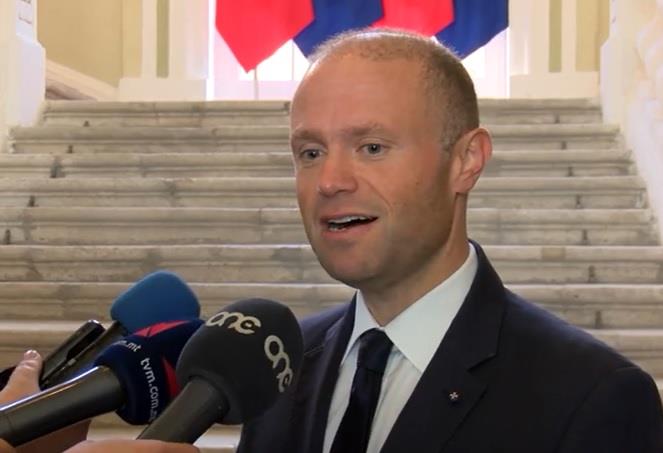
11.19am: When she began her blog, in 2008, she was more free to express herself. He said that Glenn Bedingfield launched a blog to attack her, and there were thousands of blog posts "on my wife's private life, our marriage" etc. This was harassment, he said. He said that Bedingfield was being paid by public funds, and published his posts during working hours. He was employed by OPM specifically to blog attacks against her.
11.15am: Peter Caruana Galizia mentioned an instance where she was parked at the St Julian's police station, and it went to court, and from the testimony of the police it was clear the police were lying. She was let off as there was no evidence. Our issue wasn't with the ticket but if I remember there were charges that she insulted them etc which were not true. He said that her licence plate eventually got known, and would then start finding her car damaged. He said that the process of dehumanisation had rendered her as an object rather than a person. There were people who never read what she wrote insulted her, and saw her as an object of hatred. Bit by bit she began to be called the Sahhara tal-Bidnija.
11.11am: "I have to say my wife did not like appearing on TV, and she deserved a private life, she was not paid by public funds," Peter Caruana Galizia said. But that billboard made it possible for everyone to recognise her. People begain insulting her, spitting at her. He showed the Board a photo of the billboard. After the billboard, issues began to happen. For example someone claimed she crashed into them. The police ordered her to go to the station, and after refusing the police went to get her. They found no damage on the car. There were fake reports being made about her the situation was so bad.
11.10am: Another turning point that affected our lives, Peter Caruana Galizia said, was when the PL in the 2013 election campaign set up a billboard showing her among PN persons. "There was a huge photo of her. My wife was not in the party, was not a politician. It was not acceptable that they use her in the campaign." The PL had spent year saying that my wife was paid for by the PN to write against the PL. That is absolutely not true: "we never received anything from the PN." That was the fake news used by the PL to convince their followers that my wife was a PN organ, and began the process of dehumanising my wife. Insulting her as much as possible, trying to stop her writing, etc.
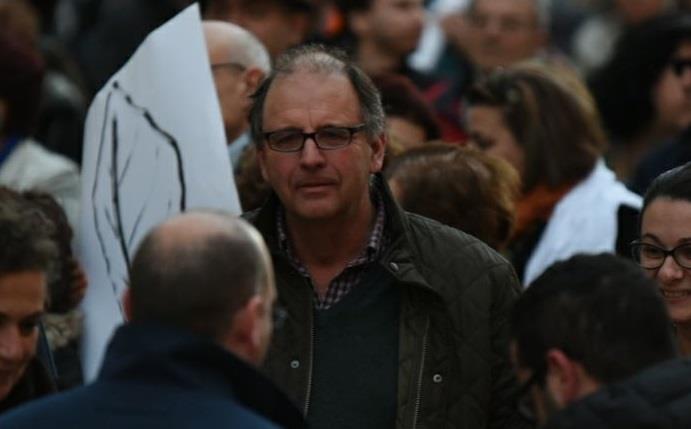
11.07am: Peter Caruana Galizia spoke about further damage to their home by yet another fire that had been set ablaze at their home He said nobody had been charged on that, even though the police and Commissioner had gone to their house, and had even asked Vodafone and GO to pass on the phone numbers in the area at the time, but they refused. The police were not able to find the culprits. This was in May 2006.
11.02am: Peter Caruana Galizia spoke about the Meinrad Calleja saga, and said that Daphne felt it was not right that the Brigadier, who was his father, to have had a KG of cocaine at home and wrote an article about that. He spoke about the burning of their home door, and how he managed to put it out with a bucket of water. Nobody had been charged. He said that eventually, when Meinrad Calleja was charged with attempted murder of another person, a lawyer appeared for him, and his wife objected to this due to her father (Guido de Marco) being in Cabinet. This was not published due to the Times Editor refusing to publish it. The column was then sent to The Malta Independent and it had been published there. She then began writing her column at The Malta Independent. There was pressure for the Independent not to let her write, but thank God they resisted, he said
10.57am: Peter Caruana Galizia spoke about how he met his wife. He said an inspector in the 80s kept her under arrest for 36 hours on trumped up charges. He said that she began writing after their children were born. She was editor of the Circle, and also wrote a monthly newspaper called the Exporter based on industry. He said that in 1988, she asked Michael Falzon to interview him for the Times of Malta. When it was published, the minister had been offended by it. She was asked to write a weekly column called "The good, the bad and the ugly", and became popular over time. Then there was a period where some investors wanted to run a new newspaper, The Malta Independent, and she worked there full time, but while being promised to be made editor at the time, she was never given the title. She had returned to writing for the Sunday Times.
10.55am: Peter Caruana Galizia takes the stand.
10.50am: Therese Comodini Cachia said that for the board to have access to consider what is in the TAP3 files can give an indication of the importance of that story for the reaction that person might have had against the journalist, and give an idea of the seriousness of the risk, and how it rose or reduced. If we want to ask whether the police took serious consideration of the risk the journalist was under, we need to see the level of risk that existed, Comodini Cachia said. "I am asking that the board retrieve the TAP3 files, because they can give more information to this board regarding the motives and possibility of risk that the journalist's life was at."
10.46am: Therese Comodini Cachia, representing the Caruana Galizia family, asked the board to acquire a copy of the files that were presented in the Chris Cardona libel case, which was being heard by then Magistrate Francesco Depasquale, as the TAP3 files might give an indication if that was a turning point that increased the risk to the journalist's life. The files will either be in the Acts of the case, or in the Magistrtate's possession, Comodini Cachia said, while Jason Azzopardi, also for the family, said that the content of those files, that show where Cardona was at the time, if they confirm the Caruana Galizia story it would mean that a government minister would have given false testimony. He asked the Board to ask now Judge Depasquale for the original TAP3 files to pass them to the board, adding that it is very urgent for this to happen.
10.45am: Sitting resumes
10.28am: A break in the proceedings.
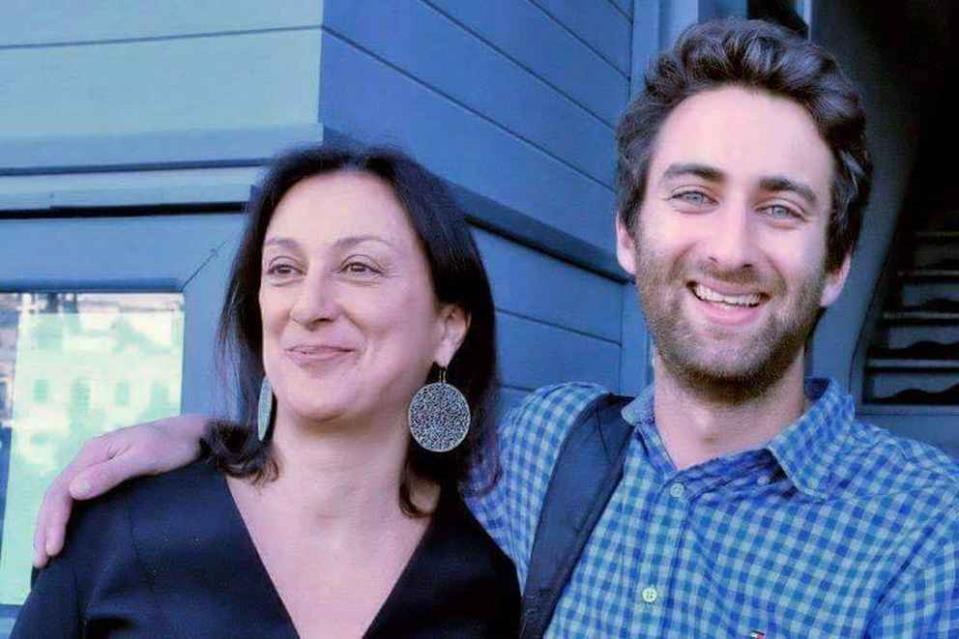
10.23am: Matthew Caruana Galizia said that 17 Black is Yorgen Fenech's vehicle that features in the Panama Papers. He said that Fenech would have had his own financial facilitators that would have set up his own vehicles. So Mizzi and Schembri used Nexia BT who used Mossack Fonseca, but Fenech would have used as yet unknown corporate services providers to set up his vehicles. The authorities were aware of 17 Black in 2016. There was some kind of compliance visit on Nexia BT and as a result the emails or some form of documentation mentioneing 17 Black and Macbridge came into the authorities' hands. So investigators were as early as 2016 trying to figure out who they belonged to. One thing that needs to be looked at is how 4 years later that process had not yet concluded. Four years later and the police are still trying to figure out who owns 17 Black, he said. One thing that we discovered recently is that many requests, or possible all of them, were directed to Malta's diplomatic representation in the UAE, but at the same time Malta's representative there, a certain Anthony Tabone, owns a company, Beat Ltd, which is in itself in business with Electrogas. How was this allowed to happen at a public service level?
10.20am: Matthew Caruana Galizia said that after his mother died, he directly communicated with the whistleblower, and the leak did not stop till April 2018. If that was what Yorgen Fenech was worried about, he would have to have the ability to stop it by rooting out the whistleblower. Electrogas had a small number of people working there at the time. The leak stopped when the Daphne Project annoucned that it was going to start publishing documents from this leak. "Then I saw through emails that they began taking internal action, he said. Since her death, they have uncovered other aspects of the money laundering scheme, such as the 17 Black owner. He said that the key purpose of the money laundering network was to siphon money from the Electrogas creation. If we assume that Fenech commissioned the murder, he said, then we also assume there was corruption behind his endeavour, and therefore Electrogas is not something that has legitimate economic rationale as if it did then corruption would not be necessary. They would have won the tender normally. Once you take that logical route, you see Electrogas as just another vehicle for corruption, and not as seperate investigation or entity that my mother was investigating.
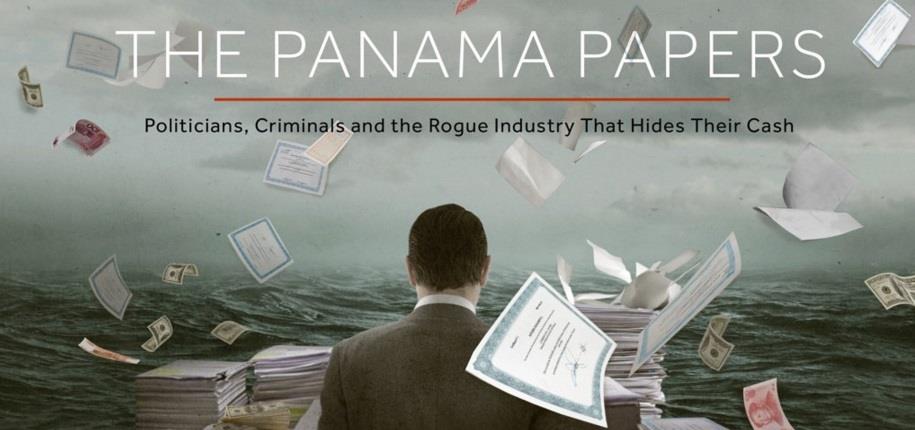
10.15am: Matthew Caruana Galizia said that when his mother had broken the story regarding Keith Schembri undergoing cancer treatment, after the Panama Papers were released, she was shocked at how vindictively Keith Schembri had reacted, when at the time she thought it was a minor story that would elicit public sympathy for him. She did not think it would elicit the response it did from him, adding that he had reacted violently, with legal harassment. After that, he said, things got worse. "It was as though everyone ... Konrad Mizzi, Chris Cardona, Silvio Debono, Keith Schembri, formed a constellation of interests directed towards shutting my mother up. She told my brother that she felt they were frying her alive." At the time of her death, she was looking into the companies regarding Mizzi and Schembri, as well as Azerbaijani companies. He said that in 2017 he was receiving documents from a whistleblower regarding Electrogas, including invoices and others.
10.13am: Matthew Caruana Galizia was asked whether there was protection after the 2017 election. He said there was such high stress at the time that he does not remember, but said his father would be able to say. He said that he had asked the police about threat assessments with regards to his mother, twice after she was murdered. He said it was not done before as he was not aware such a concept existed, and neither was his mother. "It was only after security training that I became aware that this is what should happen. But the conversations my mother had with John Rizzo dealt with whether she felt safe." He said that there was no such relationships with Rizzo's successors, and said it would have been impossible as she was investigating them.
10.06am: Madam Justice Lofaro asked him how long it took police presence to be removed in 2013. He said he is not sure, but with the removal of John Rizzo as Police Chief, things changed. He said Rizzo would speak to his mother. It was not a friendship, but he felt he had to maintain communication with her to ensure nothing would happen to her. "I knew this as I spent some time working in my mother's office." He said that there was some police protection around the hunting referendum
10.05am: Asked by Therese Comodini Cachia if his mother was faced with physical aggression, Matthew Caruana Galizia said that one of the last times was when he and his mother were walking in Valletta, a woman tried to physically assault her. It was in May 2017. We were so shocked we kept walking. One of the most worrying ones was when Ignatius Farrugia, who was a mayor and "led a mob after my mother, taunting and shouting at her. My mother had feared for her safety. That must have been around 2014 I think." It was at a Rabat Feast. She had filed a complaint that led to a court case, and what happened with that case is a travesty of justice, as the magistrate made an error in the judgement, and as a result of that mistake Farrugia was pardoned if I remember well, and he served no effective sentence, or the conviction was overturned, whatever the term is for the result of that pardoning. Asked if she was physically threatened in that instance, he said that if a large group of people was being incited to threaten a journalist, the question arises as to what would happen once they caught up with that journalist. Police having to protect someone should be a last resort, he said, noting that one has to consider that violent people are free, and not just that, financed by the State in the case of Melvin Theuma.

10am: Joseph Said Pullicino asked him whether his mother had asked for police protection, and Matthew Caruana Galizia said he does not know as his mother's approach was not to worry her children. When their house door had been set on fire many years ago, the parents had even told the children it was an accident.
9.59am: Matthew Caruana Galizia was asked whether on the days preceding the murder, he had seen any particular activity. He said that in the month leading up to the murder, one of their dogs got very ill and was going to die. The vet conducted toxicology tests and was unable to pinpoint the reasons for it. The dog seemed to be getting better but then died soon after his mother's murder. It was perhaps a measure the hitmen took, maybe throwing a piece of poisoned meat in the garden to poison the dog. "Looking back I think this might have been a possibility. I didn't see anything, I just had a feeling that things were getting worse and worse and that things were getting dangerous. Nothing gave me the indication that my mother or I were being followed, even though now I know they were following me based on what the police told me."
9.56am: On the day of the murder, Matthew Caruana Galizia said, his mother was on the way to the bank. The reason she had gone back into the house was because she forgot his father's chequebook. He said that his mother felt confident she was going to win the Chris Cardona case, adding that once the decree came out stating that the cell tower records would be preserved it was just a matter of seeing the case till the end.
9.55am: Asked whether he was witness to any worrying threats to his mother after 2013, Matthew Caruana Galizia said that the worst one was when Minister Chris Cardona froze her bank accounts. "The full power of the State came down on my mother. She and I felt helpless. I thought that this was it, and it was going to get worse and worse. I felt like the ground collapsed from under my feet."
9.53am: Matthew Caruana Galizia spoke about the parking ticket case, and said that the officer gave a statement and when getting off the stand, she said to someone in the courtroom 'that's what you told me to say'. The Magistrate then immediately threw out the case. "Another instance was when a friend of mine called me up and told me someone was driving around the university ringroad throwing a printed statement calling my mother all kinds of things, printed on government watermarked paper. I called up my mother." She filed a police report, and it turned out that the person was a government employee. The number plate was a government one. "The people in government felt a kind of impunity when intimidating my mother, as though they felt they were doing God's work."
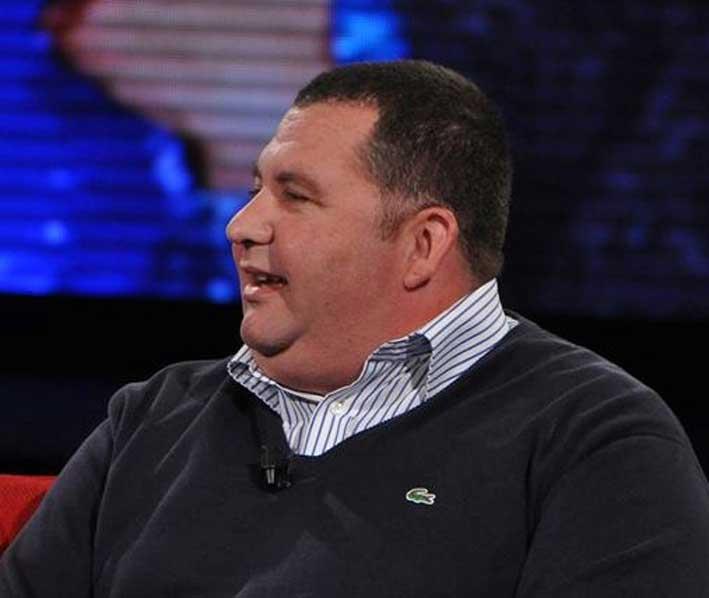
9.52am: Asked how things changed after 2013, Matthew Caruana Galizia said things got worse and worse. His mother was more and more isolated, and there was a campaign to harass her, through among other things, Glenn Bedingfield's blog. But also harassment intensified by police, libel cases intensified. Asked about police harassment, he said that when someone accused her of crashing into him, the police made a huge fuss of investigating the case, telling his mother to go to the station with her car. There was another case where an officer perjured herself by lying about giving a ticket to my mother. Asked if his mother asked for police protection after 2013, Matthew Caruana Galizia said he is not aware, adding that his mother did not like talking about these things with him. The times he was aware of threats was when he was in the room when she would receive a letter and throw it away, or wrote about it on her blog.
9.50am: Michael Mallia asked Matthew Caruana Galizia about the kind of protection his mother had until 2013. He said that former police commissioner John Rizzo had said that there were patrols at the time, and he remembers a fixed point guard outside the house, "like we have now". He said that he was aware of threats his mother had received in the past, and mentioned the time her dogs were killed, and the house fire. Asked if those incidents were investigated, he said some were investigated. When the house was set on fire in 2006 it was investigated, he said, and said that he had spoken to a court expert at the university, "but it led to nothing."
9.49am: The inquiry should seek a full unredacted copy of the egrant report, all FIAU reports, and all case files of all people featuring or connected to his mother's principal investigations, and all police reports of people implicated in his assassination, Matthew Caruana Galizia said. The question of how hitmen received unemployment benefits while doing crime, and lived a good life, is important, he said. The board finds itself starting an inquiry when things are happening quickly yet at a point where documentary evidence culd be destroyed. It is important that the first few sittings should focus on collecting that documentation. He referred to Maio Cutajar's statement, that Theuma did not have a job at first, only for this to then be found out otherwise. He gave a list of people who should be questioned.
9.47am: The police force is the state entity that most failed to take action within the scope of its powers. More specifically, the police commissioner, Matthew Caruana Galizia said. The inquiry should investigate if the state took prevention measures to protect individuals whose life are at risk. It will find that no measures of protection were granted for my mother. On the contrary, there has been a dehumanising campaign against journalists by government officials including Glenn Beddingfield and others. He said that his mother never stood a chance.
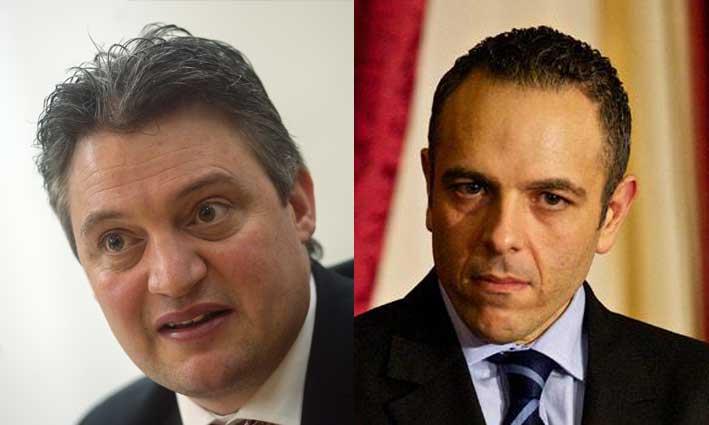
9.44am: Matthew Caruana Galizia said that the criminal justice system failed from top to bottom. He said because Konrad Mizzi and Keith Schembri and Yorgen Fenech were not charged for financial crimes, his mother was allowed to be killed. He said that even after her murder, the authorities left Schembri free. He said that common factors were Ian Abdilla who was presiding over the economic crimes unit and Attorney General Peter Grech. He said that he prioritised his loyalty to certain people over the investigations. No country is safe when the chief prosecutor is willing to tolerate rampant corruption at all levels of government
9.41am: He said that a country where journalists report on corruption and abuse of office have to live with police protection does not have a functioning criminal justice system. It is the police's failure to charge the people involved in corruption that put my mother at risk in the first place, Matthew Caruana Galizia said.
9.40am: There are officers within the police force determined to do their job properly, like those who protect my family day and night, Matthew Caruana Galizia said. He spoke of past times when police were sent to protect his mother. He said police protection even in the form of neighbourhood patrols took place in 2013 but were stopped. There are only two explanations, either the successive commissioners were negligent or the withdrawel of fixed point protection and patrols was done to put my mother at risk to make it easier for the subjects of her investigations to cause her harm.
9.38am: The testimony of Yorgen Fenech and Melvin Theuma, as well as evidence by the police, brings a logical conclusion, Matthew Caruana Galizia said. If my mother wase murdered for evidence that would have gone in hands of Abdilla and FIAU, then Fenech must have been certain that they would never have conducted a full investigation. Abdilla might say that the evidence was not enough to take action, yet why would evidence damning enough for a murder to be committed, not be enough to prosecute?
9.36am: ICIJ had not yet obtained second portion of the leak at the time, that specified 17 Black and Macbridge as target clients of Mizzi and Schembri's companies, thus the only way "my mother knew of them would have been through a source with access to emails on Nexia BT's servers", Matthew Caruana Galizia said. At the time, Nexia BT was under some watch by the FIAU. This evidence gathered by the FIAU was shared with Ian Abdilla who was at the Economic Crimes unit who was in contact with Schembri.
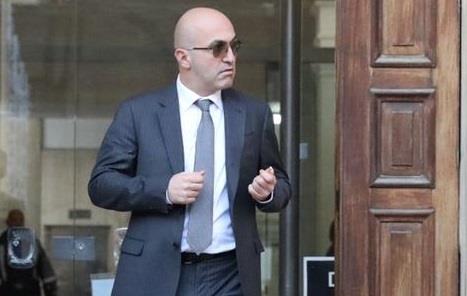
9.34am: Matthew Caruana Galizia said that a reasonable possibility is that Yorgen Fenech was motivated by the desire to prevent his mother from publishing an investigation into one of his illicit endeavours. The only one he thinks Fenech knew she was working on was the link between Mizzi and Schembri's Panama companies, 17 Black and SOCAR. The first time he heard of 17 Black and Macbridge was in April 102016, when his mother asked him if he knew anything about them. He said he did not.
9.32am: Keith Schembri was on a list of names we provided to police, Matthew Caruana Galizia said. He spoke about Glenn Bedingfield's blog, and said it was responsible for thousands of state sponsored acts of intimidation against his mother. He mentioned one article where Bedingfield said that his mother was in her death throes, and that "departure... will usher in an era of cleanliness". He said that Yorgen Fenech was only mentioned in passing on Daphne's website.
9.30am: He said that over the past two years, government officials and fanatics radicalised by the government propoganda machine have stated that he "conspired to murder his own mother" in order to topple the government. "My family is also accused of trying to derail the investigation by them, "to imply that I murdered my mother. Lack of progress in investigation is then blamed on us. As a result of Theuma’s testimony, we now know that it was Schembri himself, and another government official called Kenneth Camilleri, who were leaking information that they obtained because Schembri and possibly also Camilleri, were present during briefings that the police were inexplicably being ordered to give, or were volunteering, to the Prime Minister in the presence of Keith Schembri. This when my family had identified Schembri to the police as a potential suspect in the first instance."
9.28am: Matthew Caruana Galizia said that the first question for the inquiry to answer is whether there was any wrongful action or omission by or within a state entity that could have facilitated or prevented the assassination. "Considering the evidence presented in court over the past few weeks, the board should consider the government’s determined opposition to have this question answered, by blocking the inquiry for two years, as suspicious. Adrian Vella confessed during interrogation that he passed on messages from the Prime Minister’s Chief of Staff to Yorgen Fenech, after Fenech was arrested on suspicion of murder. Why were Keith Schembri and Vella willing to take such a risk to cover up the murder, even as they were quickly losing control of the situation? Melvin Theuma testified on oath, after being warned that he would lose his pardon and be prosecuted for murder if he perjured himself, that the Prime Minister’s Chief of Staff and his Private Secretary, Sandro Craus, arranged for state funds to be effectively embezzled to provide him with a salary while he coordinated the murder of my mother with a group of hitmen, on behalf of his patron, Yorgen Fenech. Schembri and Craus did not do this as an act of charity after finding Theuma begging on the street, but because Schembri planned directly with Fenech for Theuma to be rewarded with embezzled funds, in exchange for an illicit service that Theuma was to render." "It was around this time that Craus publicly called for all cases before the courts of Malta to be suspended so that all their resources could be dedicated to an immediate prosecution and trial that would result in my mother being incarcerated to prevent her from continuing to report."
9.25am: Matthew Caruana Galizia said "we were at a turning point in 2016, our nation decided to maintain a front and as a result my mother was killed, lives were ruined, and the country is in crisis".
9.24am: We expect full disclosure by the government, he said, adding that they expect the government to use every means to help discover if there has been a cover-up or evidence destroyed.
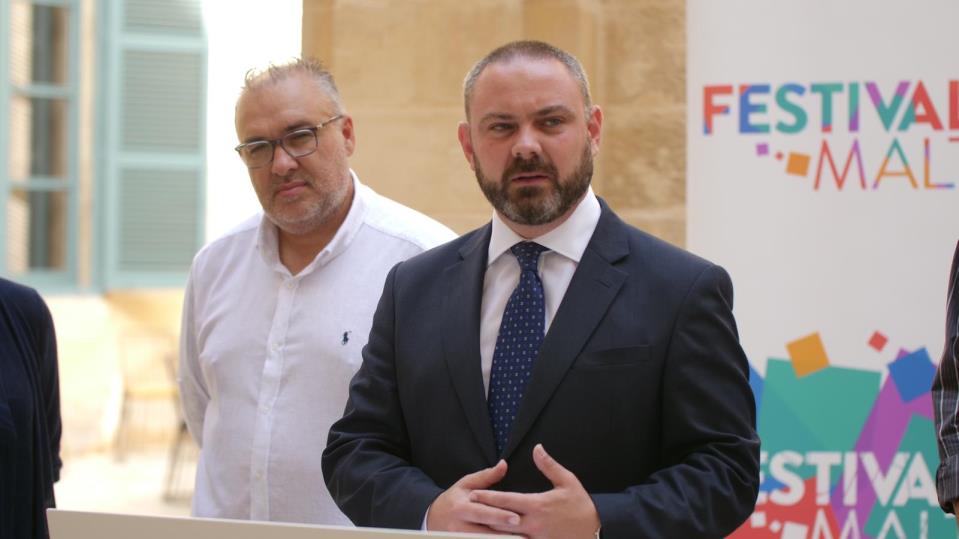
9.23am: He said that the Minister of Justice thought all along that the inquiry is a proces of arbitration between "our right to justice and the needs that we see as a captured political party. We believe him to be wrong. We hope this process will lead to truth and justice for everyone. My family is on the side of justice. This is not a process of arbitration for us. We hope the inquiry will not entertain possible approaches by government people for compromises to be made."
9.22am: "It was what was done to my mother which got me involved in everything going on in Malta. Before this I was a neutral person focused on doing my job in anti-corruption investigations." He said that this is an opening statement rather than a complete collection of evidence, but is based on evidence he would like to have the opportunity to give later. His statement should not be considered closed today, he said, adding that he needs time to think about anything being discovered now and over the coming weeks. He said that a public inquiry is something that should start automaticaslly upon the murder of a journalist investigating corruption, and is not something the family should have had to fight for.
9.20am: "Prior to the murder of my mother's assassination I worked outside Malta working on investigation into globalised corruption", Matthew Caruana Galizia says.
9.18am: Comodini Cachia asked whether the other family members, who would want to testify, should remain in the court or not. Mallia said that at this stage it is better if they go outside until they testify.
9.17am: The son of the slain journalist, Matthew Caruana Galizia took the stand.
9.16am: Proceedings will be heard in Maltese, but there are no problems with someone testifying in English if they feel more comfortable, Mallia said.
9.11am: Mallia read out the terms of reference of the Board
9.10am: The board will follow the Code of Organisation and Civil Procedure, Michael Mallia said.
9.09am: Jason Azzopardi and Therese Comodini Cachia, representing the Caruana Galizia family, are in the room on one side.
9.08am: Judges entered. Everyone seated.
The public inquiry into the assassination of Daphne Caruana Galizia is holding its first sitting in court this morning.
Judge Michael Mallia is the chairman of the inquiry board. Chief Justice Emeritus Joseph Said Pullicino and Madam Justice Abigail Lofaro are the two other members.
The terms of reference are to investigate independently and to report to the Prime Minister on the assassination of Daphne Caruana Galizia on the 16th October 2017 and on the events preceding, concomitant with, and following upon, the assassination with a view to, among other things, to determine whether any wrongful action or omission by, or within, any State entity facilitated the assassination or failed to prevent it.
It will also determine, among other things, whether the State had and has in place effective criminal law provisions and other practical means to avoid the development of a de facto state of impunity through the frequent occurrence of unresolved criminal acts and to deter the commission of serious criminal offences, backed up by law enforcement machinery for the prevention, suppression, investigation and punishment of serious breaches of the law.
Find out more here